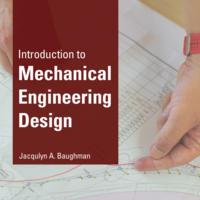Search
Books+
Searching 1,73 books
Search related to the career Industrial Engineer
Career Prospects for Industrial Engineers
Industrial engineering is a versatile field that offers a wide range of career prospects. Industrial engineers are in high demand across various industries due to their unique skill set that combines engineering principles with business knowledge. Here are some potential career paths for industrial engineers:
1. Manufacturing Engineer: Industrial engineers can work in manufacturing industries, optimizing production processes, improving efficiency, and reducing costs. They may design and implement lean manufacturing systems, develop quality control procedures, and analyze production data to identify areas for improvement.
2. Supply Chain Manager: Industrial engineers play a crucial role in supply chain management. They can work as supply chain analysts, logistics coordinators, or operations managers, ensuring smooth and efficient flow of goods and services from suppliers to customers.
3. Operations Research Analyst: Industrial engineers often work as operations research analysts, using mathematical modeling and statistical analysis to solve complex problems related to production planning, resource allocation, and inventory management. They help organizations make data-driven decisions to optimize their operations.
4. Project Manager: With their strong analytical and problem-solving skills, industrial engineers can excel as project managers. They oversee the planning, execution, and completion of projects, ensuring that they are delivered on time, within budget, and meet the required quality standards.
5. Quality Engineer: Industrial engineers can specialize in quality engineering, focusing on developing and implementing quality control systems, conducting audits, and ensuring compliance with industry standards and regulations. They work to improve product quality and customer satisfaction.
6. Ergonomics Specialist: Industrial engineers with expertise in ergonomics can work to optimize work environments, equipment, and processes to enhance worker safety, comfort, and productivity. They may design ergonomic workstations, analyze workplace injuries, and develop strategies to prevent occupational hazards.
7. Consultant: Industrial engineers can work as consultants, providing expertise to organizations seeking to improve their operations, increase efficiency, and reduce costs. They may offer recommendations on process optimization, supply chain management, or facility layout design.
8. Research and Development Engineer: Industrial engineers can contribute to research and development efforts, working on innovative projects to improve products, processes, or technologies. They may collaborate with cross-functional teams to design prototypes, conduct experiments, and analyze data.
Overall, industrial engineers have a broad range of career opportunities in various industries such as manufacturing, healthcare, logistics, consulting, and technology. Their skills in process optimization, data analysis, and project management make them valuable assets in today's competitive business environment.
Source: Various AI tools
Uhandisi
Vocational skills
Searched in English.










































